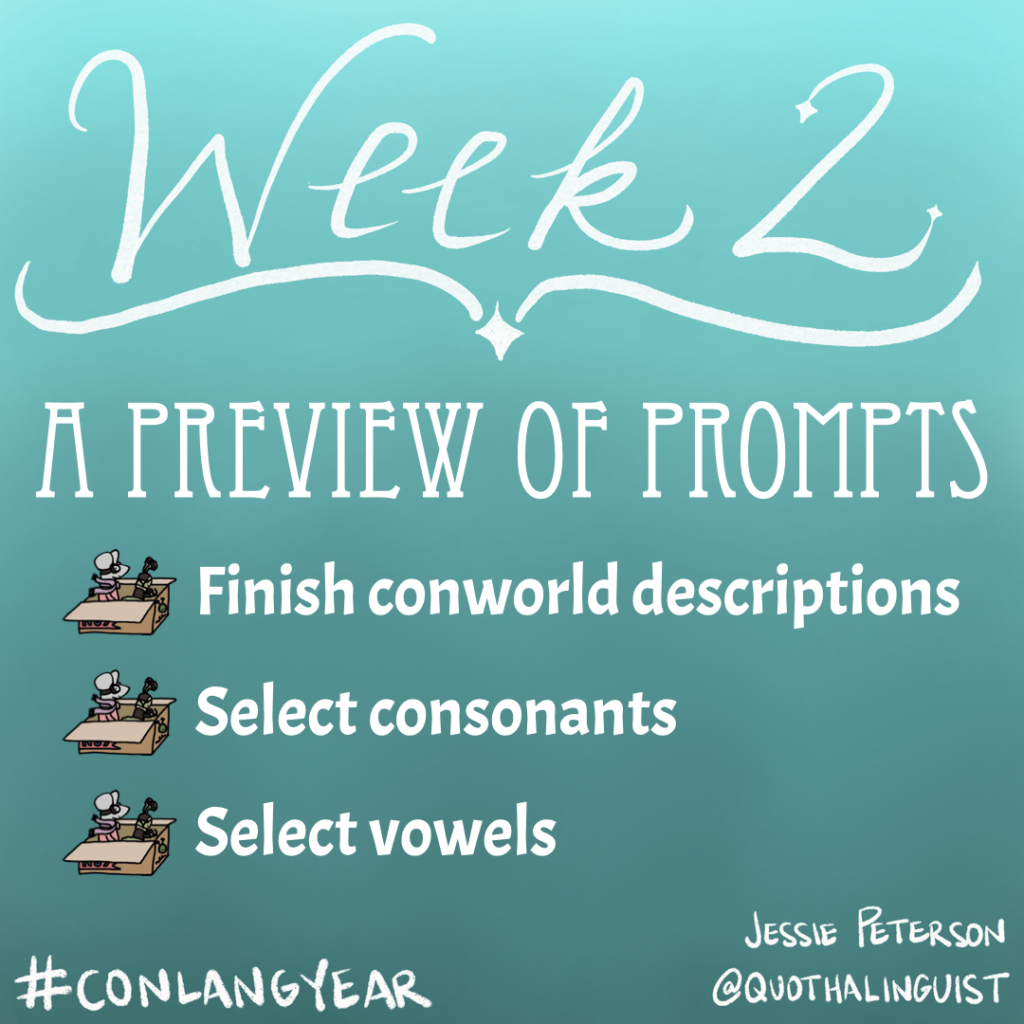
Day 8, January 8
Goal: Describe (or design) native fauna
Note: Focus on the wildlife that is native in your speakers’ immediate environment.
Tip: As with the flora, you can “prioritize” fauna by focusing on the ones your speakers interact with most.
Work focus: Create/Make/List
Day 9, January 9
Goal: Summarize your speakers and their world
Note: This is the start of the official documentation of your language!
Tip: Introduce the basics, focusing on what you find most important.
Work focus: Solidify/Write/Share
Day 10, January 10
Goal: Choose “series” of consonants to incorporate
Note: The series you’re choosing from are the columns and rows of the IPA consonant chart.
Tip: Familiarize yourself with all the sounds first, and remember that these consonants are a starting point.
Work focus: Organize/Plan/Structure
Day 11, January 11
Goal: Decide if you want a voicing distinction
Note: Focus on the stops and fricatives as you make this decision.
Tip: If you only want select voicing distinctions within a row of sounds, give them to the alveolars.
Work focus: Organize/Plan/Structure
Day 12, January 12
Goal: Research other consonant articulations
Note: You can evolve these articulations and sounds through sound changes.
Tip: Use these options sparingly (if at all) in the proto-inventory.
Work focus: Learn/Brainstorm/Try
Day 13, January 13
Goal: Choose monophthongs
Note: The five-vowel system is a classic option for a good reason.
Tip: Select vowels from opposing areas for maximal distinctions.
Work focus: Organize/Plan/Structure
Day 14, January 14
Goal: Choose diphthongs (if any)
Note: As you make your decision, consider if you will allow V-V sequences in forms.
Tip: A form like tai can be one syllable or two, depending on your selections.
Work focus: Organize/Plan/Structure
